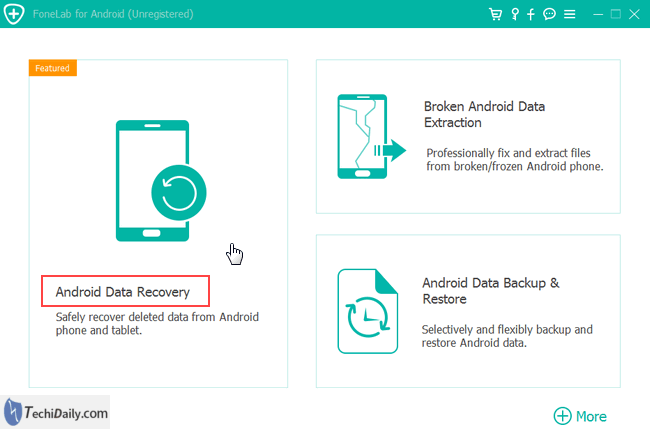Possible solutions to restore deleted videos from X100 Pro


Don’t worry! You can easily recover deleted video files from laptop before it is overwritten by other data. First download a easy-to-use data file recovery utility to restore your deleted video files or folders from your Vivo X100 Pro.
The Android Data Recovery is just a tool that you need here. It empowers you to scan all lost files on the phone's internal and external memory, and then recover your needed files on Vivo X100 Pro selectively or in a batch. You can use it to deal with all kinds of data losing problem on your Vivo X100 Pro, including video, contacts, messages, photos, documents, music, etc. What's more, the program have a wide supported arrange, that means devices from Samsung, HTC, Motorola, Sony, LG, etc. can all be restored completely.
- Part 1: Possible solutions to restore deleted videos from X100 Pro (on macOS)
- Part 2: Possible solutions to restore deleted videos from X100 Pro (on Windows)
Step 1: Download and launch the Aiseesoft FoneLab Android Data Recovery for Mac
Download and install the Aiseesoft FoneLab Android Data Recovery for Mac in your Mac computer, when you open it, a dialog box will pop up to remind you whether to register, purchase or free try.
Note: You can free try this software in 30 days

Step 2: Connection
Run this powerful Android data recovering software on your Mac computer, and then connect your Vivo X100 Pro device to computer via the USB cable. The program will detect your device automatically.
Step 3: Enable USB debugging.
Android Data Recovery will prompt you to enable USB debugging on your Vivo X100 Pro if you don’t open the debugging mode. The program will detect the version of your Vivo X100 Pro device automatically and give you the instruction of opening the USB debugging mode on your X100 Pro. After finishing the operations on your device, click “OK” button.
Step 4: Select the videos you want to recover.
After connection, all file types on your Vivo X100 Pro will be showed in the interface. Choose the file types you want to recover, such as videos, contacts, messages, messages attachments, call logs, photos, gallery, picture library, audios and other documents. Check the file types you want to recover and click “Next”. The program will scan your device automatically.
Step 5: Recover Vivo X100 Pro videos
When the scanning is finished, all types of files will be listed in categories on the left control. You are allowed to check the detailed information of each data. Preview and select the data you want to recover, and then click “Recover” button to complete recovering process.
Step 1: Download and launch the Android Data Recovery
Download and install the Android data recovery tool in your Windows computer, you can free try this software in 30 days.
Step 2: Connection
Connect your Vivo X100 Pro device to your Windows computer via the USB cable. Wait for seconds before the device is detected. Install the device driver on your computer if it hasn’t been installed.
Step 3: Enable USB debugging.
Allow USB debugging when your Android prompts you of USB debugging permission. After finishing the operations on your Vivo X100 Pro, click “OK” button.
Step 4: Preview and recover the lost videos.
Soon, all Android available files will be classified into category on the left. You can toggle the button of “Only display the deleted item(s)” to “On”, so that you can quickly find the wanted Android file. Click “Recover” button and choose a destination folder to recover files. Within seconds, you can navigate to the file folder and check your deleted video files from Vivo X100 Pro.
Now you have recovered deleted videos on Vivo X100 Pro successfully. To avoid situations like this, you has better back up Android files on PC just in case.
- Title: Possible solutions to restore deleted videos from X100 Pro
- Author: Vivienne
- Created at : 2024-07-17 04:27:52
- Updated at : 2024-07-26 17:42:29
- Link: https://review-topics.techidaily.com/possible-solutions-to-restore-deleted-videos-from-x100-pro-by-fonelab-android-recover-video/
- License: This work is licensed under CC BY-NC-SA 4.0.
